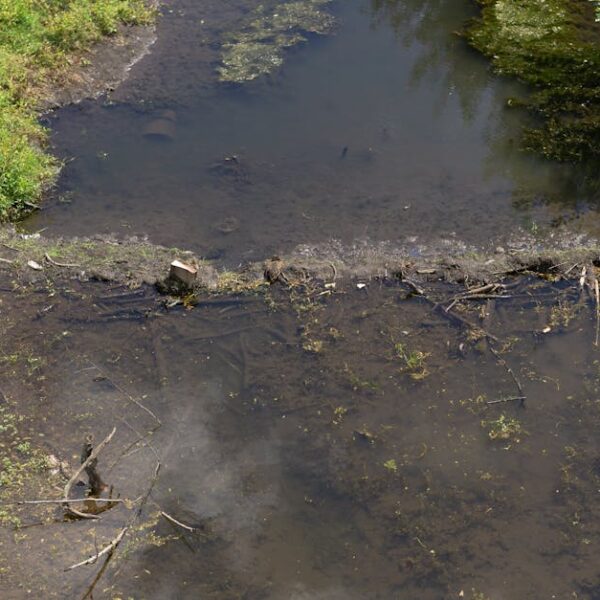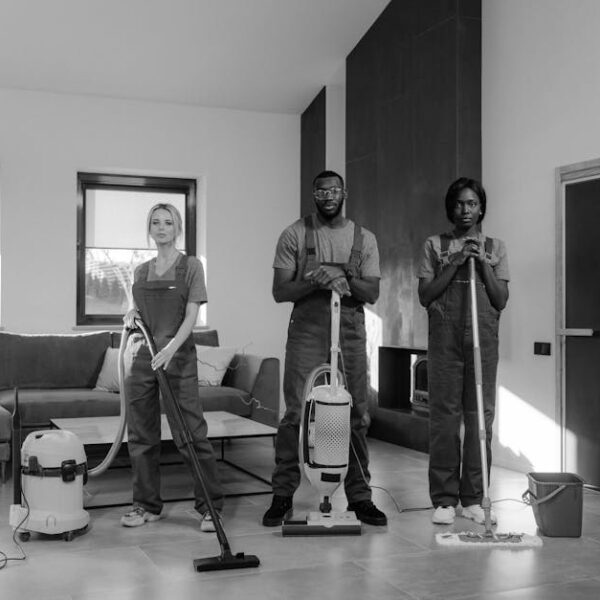Cleaning houses may seem like an informal endeavor, but the reality is often far more intricate. Before you roll up your sleeves and get scrubbing, it’s essential to know that house cleaning may come with legal requirements, such as licensing. While a license may not be required in all states, understanding the specific requirements in your area is paramount to avoid businesses operating illegally.
Let’s start with discussion.
Cleaning Business Licensing Requirements in General
Licensing serves to regulate industries and protect customers from substandard work and unethical business practices. The requirement for a cleaning license varies from state to state. A ice of caution; operating a cleaning business without the necessary license could lead to substantial penalties, and in some cases, legal repercussions.
Here are some reasons why states might require a license for cleaning businesses:
- To ensure professional standards are met.
- To enable oversight and accountability.
- To protect consumers from substandard services.
From a legal perspective, here are a few steps you can take to avoid legal consequences when starting a cleaning business:
- Check local regulations and requirements.
- Consult with a business attorney to understand how the regulations apply to your business.
- Apply for necessary permits and licenses before starting operations.
Do You Need a Cleaning License for Every State?
Navigating the intricacies of state regulations can be confusing. Not all states require cleaning businesses to acquire a license for their operations. However, it’s essential to understand this doesn’t mean a free-for-all. Even in states where a cleaning license isn’t required, other forms of business registration or permits may be necessary.
Understanding your state’s demands is a matter of doing extensive research or consultation. States that typically require a cleaning license include California, New York, and Nevada. On the other hand, states like Colorado and Arizona have relaxed requirements.
Different state regulations result from varying local needs and attitudes towards business legislation and regulation. Certain states might have a more stringent approach due to a history of consumer complaints or business fraud within the cleaning industry. Conversely, others might maintain a more hands-off approach to encourage startups and small business growth.
Navigating the Licensing Process
Acquiring a cleaning license involves a series of steps. These include filling out the necessary application forms, paying the required fees, and in some states, passing relevant examinations. The costs associated with obtaining a cleaning license can also vary, including license application fees, examination fees (where required), and costs to maintain the license.
For a successful license application, follow these steps:
1. Research the specific requirements for your state or city jurisdiction.
2. Fill out all necessary application forms accurately and in detail.
3. Budget for all the costs involved.
4. Submit your application and wait for approval before commencing operations.
Here are the necessary documents and prerequisites for a license application:
- Completed application form
- Proof of identity and residency
- Business plan
- Tax Identification Number
- Proof of insurance and bonding (if required)
Can Fire Hazards from Vacuum Cleaners Affect Your License to Clean Houses?
When considering the potential risks of house cleaning, it’s vital to recognize vacuum cleaner dangers. Overheating motors and frayed cords can lead to fire hazards, which not only threaten property but can also jeopardize your professional license to clean houses. Safety should always be a top priority to maintain your reputation.
Beyond Licensing: Additional Requirements for Cleaning Businesses
Taking the initial step of licensing isn’t enough. You also need to consider other requirements like insurance and bonds.
Insurance protects your business from possible liabilities while bonding guarantees client’s compensation in case of damages or theft. These additions could prove to be a life-saver in case of untoward incidents and lawsuits.
Here are some pros and cons of having insurance and bonds for cleaning businesses:
| Pros | Cons | |
|---|---|---|
| Insurance | Protects against possible lawsuits and claims, boosts clients’ trust. | May be costly especially for new or small businesses. |
| Bonds | Guarantees compensation to clients, enhances business credibility. | Needs regular payments like insurance, some types could be quite expensive. |
Here are some tips on selecting the best insurance and bonding for a cleaning business:
- Determine the specific insurance needs of your business.
- Compare rates and coverage from multiple insurance providers.
- Take note of the reputation, client reviews, and responsiveness of the insurance provider.
The Impact of Licensing on the Growth and Trust of Your Cleaning Business
Having a license positions your cleaning business as a credible and trustworthy choice. It aids in attracting potential clients and driving growth. Moreover, a license can serve as a practical tool in differentiating your business from local competition which may not be licensed.
Here are some of the benefits of obtaining a license for a cleaning business:
- Demonstrates professionalism and commitment to high standards.
- Increases the trust factor, attracting a loyal clientele.
- May open up opportunities for contracts with larger businesses or agencies.
How can you leverage the cleaning license for business growth and trust?
- Showcase your license details prominently in your office, on your website, and any promotional material.
- Consistently communicate the benefits of hiring a licensed service to your clients.
- Ensure you abide by all professional standards the license requires to maintain a solid reputation.
A pro tip: Ensure that you communicate to clients that your cleaning business is fully licensed and bonded. Take advantage of social media and other electronic platforms for this communication. This transparency builds consumer confidence and trust in your services, ultimately contributing to business growth.
Key Takeaway:
- Licensing requirements for house cleaning services vary from state to state, and being aware of these is crucial to avoid hefty penalties or legal consequences.
- The process of obtaining a cleaning license usually involves filling out application forms, paying fees, and in some cases, passing relevant exams.
- Beyond licensing, insurance and bonds are additional requirements that can provide benefits such as increased client trust and protection against potential liabilities.
- Having a license can positively impact the growth and reputation of a cleaning business, offering an opportunity to differentiate from non-licensed competitors.
Despite the complexities, embarking on the journey of establishing a fully licensed and insured cleaning business is a rewarding endeavor. Not only does it elevate professionalism and trustworthiness, but it also paves the way for growth and stability in the industry. Embrace this path with diligence and commitment, always striving to deliver quality and ethical cleaning services.
FAQs
Q: What is the significance of having a cleaning license?
A: A cleaning license lends credibility to your business, showing that you are committed to meeting professional standards. It can enhance trust with clients, reduce legal risks, and open up opportunities with larger businesses or agencies.
Q: Which states usually require a cleaning license?
A: Requirements vary per state but states like California, New York, and Nevada typically require a cleaning license. It’s crucial to research the specific requirements in your area to ensure compliance.
Q: What are the potential consequences of running a cleaning business without a license?
A: Operating without necessary licenses can lead to substantial penalties, possible legal implications, and damage to the business’s reputation.
Q: What other requirements should I consider apart from the license?
A: Apart from a cleaning license, you should consider obtaining insurance and bonds. These protect your business from potential liabilities and guarantee client compensation in case of damages or theft.
Q: How can I leverage a cleaning license to grow my cleaning business?
A: You can leverage your cleaning license by showcasing your license details prominently in all marketing materials. Regularly communicate the benefits of hiring a licensed service to your clients and maintain the professional standards that the license requires.
Immerse yourself in more enriching content like this by sharing this article and exploring other posts on our website.












